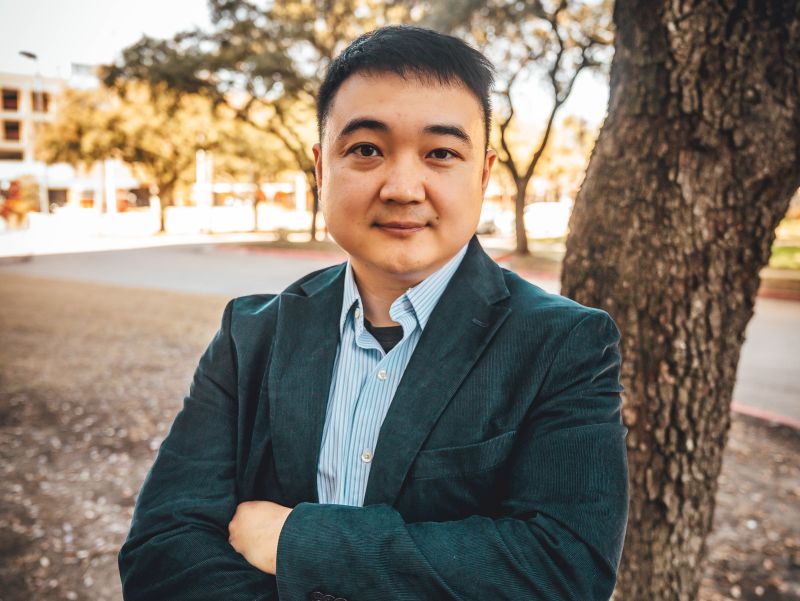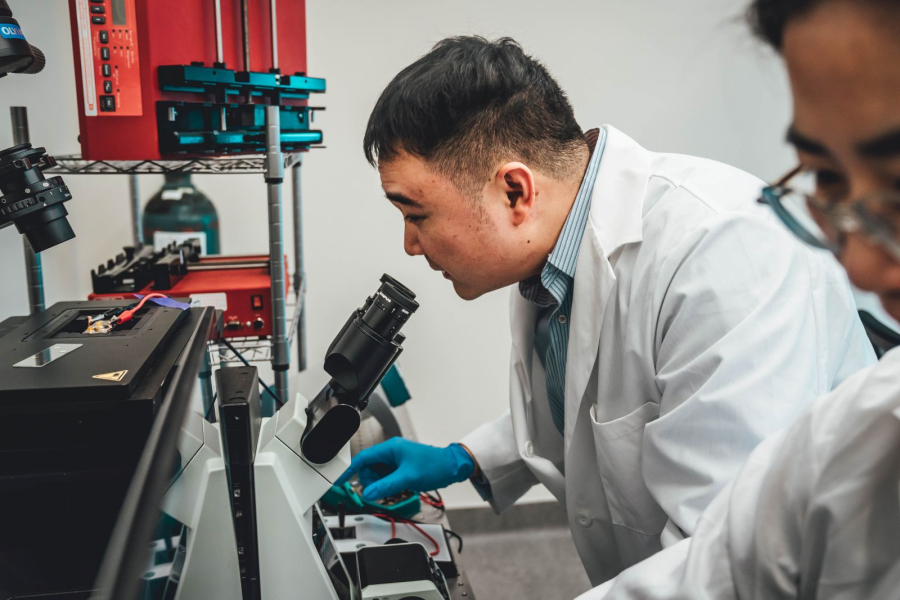An assistant professor at the Cullen College of Engineering is the latest recipient of a CAREER award from the National Science Foundation.
Ran An is an assistant professor in the Biomedical Engineering Department with a joint faculty appointment in the Department of Biomedical Sciences at the UH Tilman J. Fertitta Family College of Medicine. His proposal, “Alternating Current Electrophoresis in Spatially Non-Uniform Electric Fields,” was chosen for funding by the NSF.
An was grateful for the support he had received from various people in his professional career.
“First, I want to thank my Ph.D. advisor Dr. Adrienne Minerick, my postdoc mentor Dr. Umut Gurkan, and my lab members Yi Yang, Qingrong He, Bowen Xu, and Dr. Cheng Wang — I couldn’t have won this award without their mentorship and hard work.” he said. “This is a new phenomenon that we discovered, and this NSF CAREER project will allow us to systematically and comprehensively characterize this novel phenomenon, and we believe that the outcomes from this project will guide us to develop numerous novel biomedical technologies.”
An added, “This is a new phenomenon that we found, and we believe we could develop many useful technologies based on the outcome from this NSF career project.”
An’s research will examine a curiosity in recent research on electrolyte migration using alternating current (AC) electric fields.
According to his proposal, “Scientists have assumed that applying AC voltages to an electrolyte solution encourages the electrolytes to migrate in a way that does not affect the overall bulk solution properties. However, recent research studies revealed that electrolyte bulk solution properties change when a spatially non-uniform AC electric field is applied. Effects such as flow reversal, pH shifts, solution osmotic pressure change, and the generation of ion concentration gradients were observed.”
“This project’s objective is to understand how electrolytes and other charged particles respond to spatially non-uniform AC electric fields in bulk solutions over extended periods. This fundamental knowledge can be applied to develop novel technologies for molecular biosensing, water desalination, and high-throughput drug screening assays.”
The grant is for $515,501, with an estimated end date of June 2029. Beyond this grant, An’s current research focuses on the development, clinical translation and potentially commercialization of: 1) electrokinetic- and electrochemical-driven microfluidic biosensors for rapid and affordable point-of-care disease diagnostics and monitoring; 2) organ-on-chip functional assays to facilitate fundamental understanding of disease pathophysiology, drug testing, and personalized healthcare, with a specific interest in human microcirculatory health.
An joined the Cullen College of Engineering in November 2022. Previously, he worked as a senior research associate for Case Western Reserve University and a microfluidics engineer for LI-COR Biosciences. He earned his doctorate and master’s degrees in chemical engineering from the Michigan Technological University, and his B.S. in chemical engineering from the Beijing University of Chemical Technology.

![Ran An [left] with his research group. Ran An [left] with his research group.](/sites/ccoe.egr.uh.edu/files/images/news/2024/group-01.jpg)
